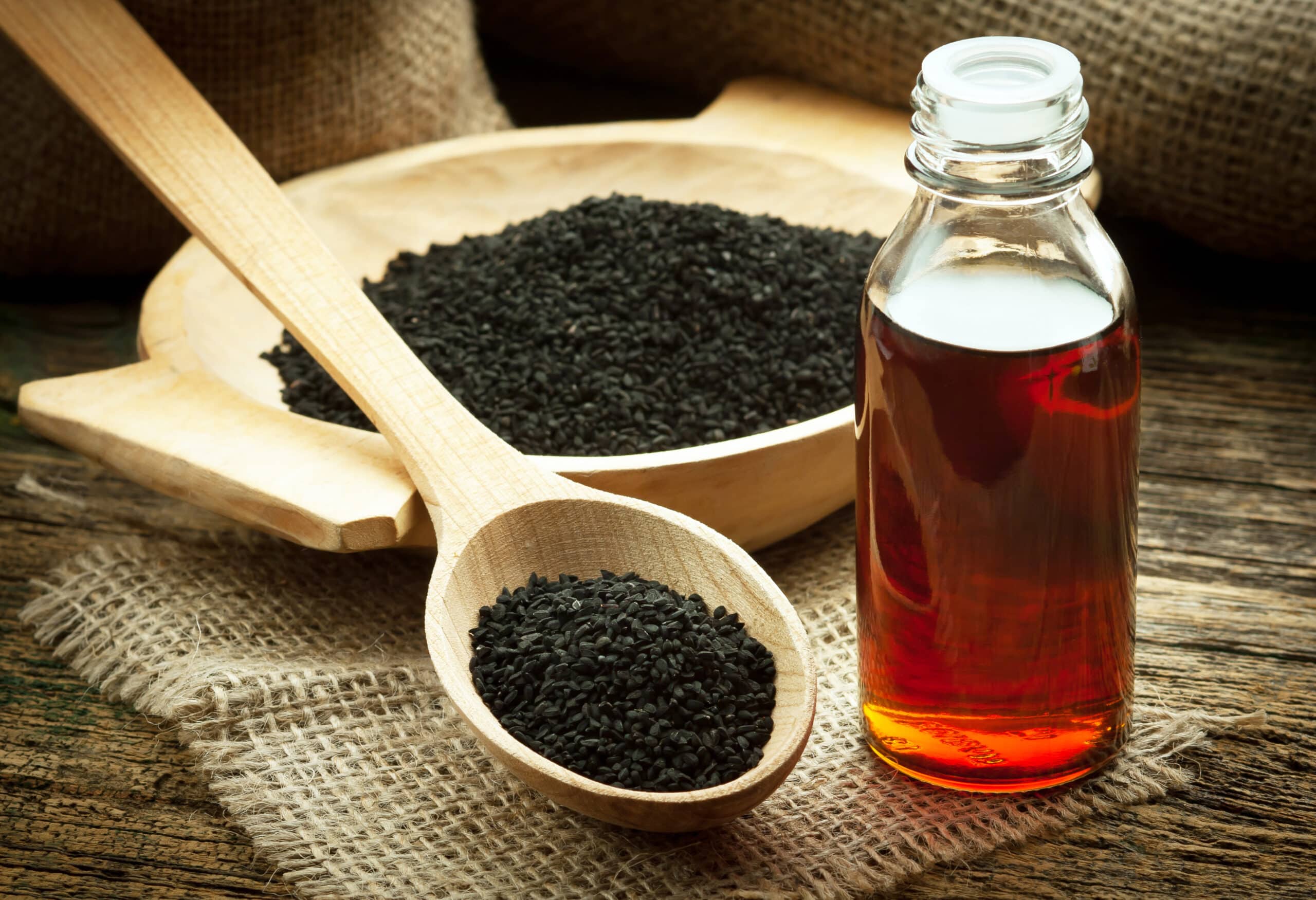Cancer depending on what form of cancer, in the most basic explanation is cells gone wrong, the cause of is most often not discovered of which malignant cancers are the ones to be most worried about.
Many studies have shown the effects of Nigella sativa on various different cancer cells, and the list is long offering up over 57 reviewed papers on the subject finding black cumin to be effective against cancers such as blood, breast, colon, pancreatic, lung, leukemia, skin, fibrosarcoma, renal, prostate, and cervical cancer.
Anticancer effects are mediated through different modes of action including cell cycle arrest, apoptosis induction, ROS generation and anti-metastasis/anti-angiogenesis, and anti-proliferation. Additiontally anticancer activity was also found to exhibited through modulation of multiple molecular targets including p53, p73, PTEN, STAT3, PPAR, activation of caspases, and generation of ROS.
Extracted from Nigella sativa thymoquinone has been investigated for its antioxidant, anti-inflammatory, and anticancer properties since the 1960 in vitro and vivo models as it may act as a superoxide and free radical scavenger to go along with preserving activity of various antioxidant enzymes such as glutathione-S-transferase, glutathione peroxidase, and catalase. Its anti-inflammatory and antioxidants effects have been reported in various disease models of diabetes, carcinogenesis, asthma, and encephalomyelitis.
In a large review of studies conducted on black cumin investigating its role as an anticancer agent it was explained that many active ingredients have been found within the seeds containing fixed and essential oils, proteins, alkaloids and saponin which described quantification of 4 pharmacologically important components: thymoquinone, dithymoquinone, thymohydroquinone, and thymol within the oil of the black seed oil by HPLC.
Black cumin has been shown to be provide effective protection against the toxicity of the drug cyclophosphamide, suggesting administration of NSO of TQ can lower CTX induced toxicity by upregulation of antioxidant mechanisms, indicating potential to minimise toxic effects of treatment with anticancer drugs.
Nigella sativa oil has been recommended as a natural radioprotective agent against immunosuppressive and oxidative effects of ionizing radiation.
Nigella sativa has been shown to inhibit colon carcinogenesis of rats in postinitiation stage in epilepsy studies, that may be associated with suppression of cell proliferation in the colonic mucosa with no adverse side effects.
Antineoplastic activities of thymoquinone have been demonstrated in multiple cancers, including cancer cells have been shown to be unable to produce fibroblast growth factor and protein collagenase after being incubated with Nigella extract.
Angiogenesis was blocked by thymoquinone in vitro and vivo preventing angiogenesis in xenograft human prostate cancer mouse models, and inhibited human prostate tumor growth at low doses with almost no chemotoxic side effects.
Thymoquinone has also been shown to suppress growth and invasion, and to induce apoptosis of glial tumour cells via degrading tubulins and inhibiting 20S proteasome, telomerase, autophagy, FAK and metalloproteinases.
Thymoquinone was shown to increase sub-G1 accumulation and annexin-V positive staining indicating apoptotic induction. TQ was observed to be more potent than cisplatin in elimination of SiHa cells via apoptosis with down regulation of Bcl-2 proteins.
Thymoquinone triggers apoptotic cell death in human colorectal cancer cells via p53-dependent mechanisms, indicating TQ is an antineoplastic and pro-apoptotic against colon cancer cell line HCT116. Effects are modulated by Bcl-2 proteins linked to p53, supporting using TQ for the treatment of colon cancer; meaning that black seed oil kills cancer cells.
Autophagy is inhibited by thymoquinone, and it induces cathepsin mediated caspase independent cell death in glioblastoma cells.
Black seed oil has much potential in regards to healing to be had in regards to cancers. So much data and research is available that it makes one wonder why cancer patients are not routinely being treated with black cumin seed oil.




